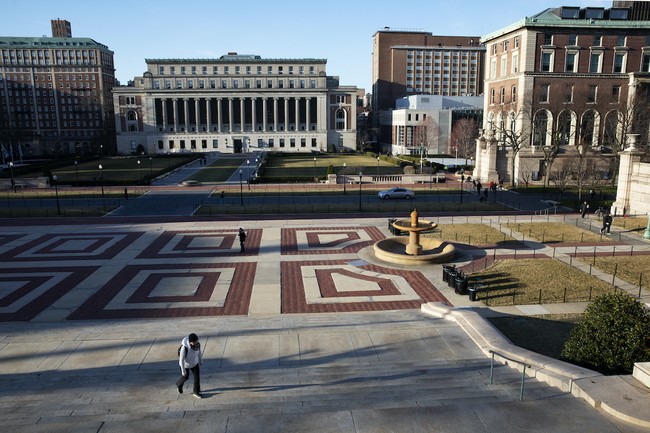Columbia University is considering taking harsher measures against the pro-Hamas crowd on campus as classes are set to begin again in the fall.
University President Minouche Shafik has proposed beefing up security with more officers who are granted arrest powers to deploy against rowdy protesters supposedly advocating for the Palestinians, according to a Wall Street Journal exclusive. We reported earlier that the pro-Hamas crowd is already gearing up for another round of protests at campuses across the country.
In a proposal currently under discussion among administrators, the school would add “peace officers” to its security personnel, according to people briefed on the proposal. Columbia currently has about 290 campus security personnel.
The people say it is still in early stages but could lead to peace officers with the authority to arrest and physically contact a student; current campus officers can do neither except under exceptional circumstances including self-defense. The cost, quantity of officers and even uniforms are under debate, as is whether Shafik needs approval from faculty or the university’s board.
The administration says it will seek input from faculty before implementation.
“We seek to strengthen the department’s skills and training in de-escalation techniques, expanding the department’s ability to manage a range of incidents while taking into account the fact Columbia does not have its own police force, as many peer institutions have, and potentially reducing our reliance on the NYPD,” said Columbia spokesperson Ben Chang.
There has been disagreement among the university’s leaders about beefing up security or seeking other ways to curb the more raucous demonstrations on the horizon.
Since then, school leaders have largely been in limbo, unable to agree on whether to enact stricter rules governing student conduct and speech. A sizable minority of faculty has pushed back against many proposals for harsher rules, prioritizing tolerance of free speech and political dissent over the prevention of demonstrations on campus, according to people familiar with the discussions.
The school’s board of trustees is eager to avoid a free-for-all when students return to campus in a few weeks, some of those trustees said. Some said they are losing faith in President Shafik.
Plans for more police with greater powers at Columbia raises uncomfortable associations with 1968, when New York City police roughed up protesters on campus in an attempt to quell demonstrations. Faculty afterward took more control over rules for student conduct, discipline and enforcement.
As it stands currently, campus security is not allowed to make physical contact with or detain students. If a situation becomes untenable, they can contact city police after consulting with faculty leaders, the report explained.
“There’s no middle ground, it’s either do nothing and let the protesters do whatever they want, or call the NYPD,” said Prof. James Applegate.
On the other hand, the far leftist elements in Columbia’s faculty senate have advocated for a more lenient approach against pro-Hamas protesters. There are also fears that some staff members might stage a strike if leadership implements more stringent security measures.
The antisemitism issue has been a significant problem as the protests began after October 7 when Hamas massacred Israelis during a surprise attack. Even members of the staff were found to have promoted antisemitic beliefs in private and public.
As anti-Israel protesters plot their next wave of demonstrations, demonstrators are looking at various strategies to push the school to divest from Israel and acquiesce to other demands. Mahmoud Khalil, a student negotiator for Columbia University Apartheid Divest, said protesters “will continue doing what they’ve done in conventional and unconventional ways,” which include “not only encampments” but “any available means necessary to push Columbia to divest from Israel.”

